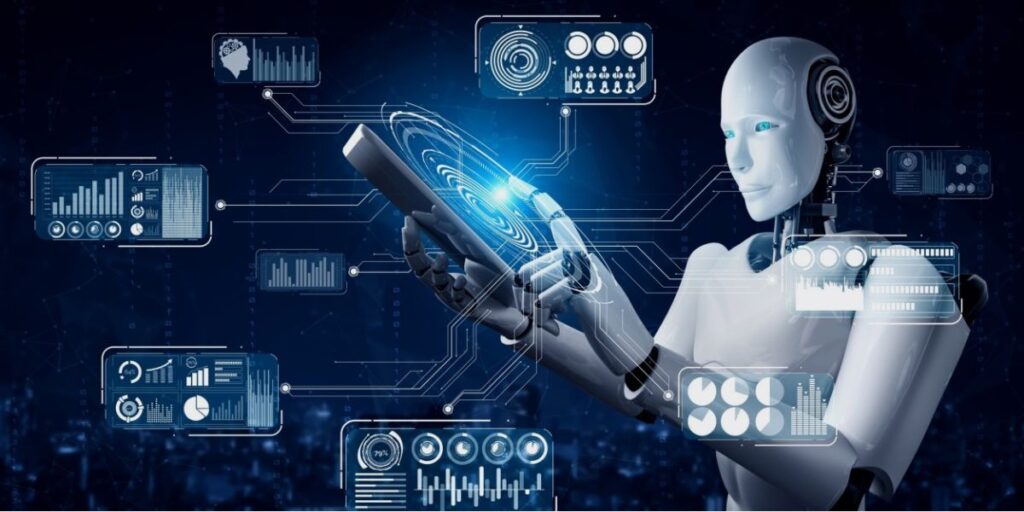In the digital age, data has become one of the most valuable commodities, driving innovation, decision-making, and communication. Yet, as the amount of data generated grows exponentially, so do concerns over its protection. The future of data protection is poised to evolve significantly, driven by technological advancements, stricter regulations, and an increasing awareness of privacy issues among consumers and businesses. Understanding where data protection is headed is crucial for navigating the future digital landscape.
Increased Adoption of AI and Machine Learning
One of the most transformative technologies shaping the future of data protection is Artificial Intelligence (AI) and Machine Learning (ML). These technologies will play a pivotal role in identifying, preventing, and mitigating data breaches. By analyzing large data sets and recognizing patterns, AI can detect anomalies in real time, flagging potential security threats before they cause significant harm. For instance, ML algorithms can help companies recognize unusual user behaviors, signaling a possible cyberattack.
Additionally, AI can help automate data protection processes, such as encryption, data masking, and access management. As AI models improve, they will be able to provide more robust security solutions that can adapt to new types of cyberattacks, making data protection more dynamic and proactive.
Zero Trust Architecture
As cyberattacks become more sophisticated, companies are moving away from the traditional perimeter-based security models to a more modern approach known as Zero Trust Architecture (ZTA). Zero Trust operates under the principle that no entity, inside or outside the network, should be trusted by default. Every device, application, or individual must be verified and continuously monitored.
The future of data protection will see increased adoption of zero-trust models across organizations, enhancing the security of data environments. Zero Trust emphasizes multi-factor authentication (MFA), granular access controls, and constant auditing to minimize vulnerabilities. This model is especially effective in cloud-based infrastructures where traditional network boundaries no longer exist, thus offering enhanced protection for distributed and remote work environments.
Stricter Data Protection Regulations
Governments and regulatory bodies across the globe are introducing stricter regulations to ensure better data privacy for individuals. Europe’s General Data Protection Regulation (GDPR) has set a precedent, inspiring other regions to implement similar laws. Countries like Brazil (with its LGPD) and California (with its CCPA and CPRA) are leading the charge in data protection regulation outside of Europe.
In the future, these regulations are expected to become even more stringent, expanding beyond basic compliance requirements to impose significant penalties for non-compliance. The introduction of stronger frameworks will encourage organizations to prioritize data protection, enhancing transparency and control over data usage. As a result, businesses must continuously adapt their policies and technologies to stay compliant, fostering a more privacy-conscious global environment.
Encryption as the Default Standard
Encryption has long been a key tool for protecting sensitive data, but as cyber threats become more sophisticated, encryption will evolve into a fundamental component of data protection strategies. Future data protection will likely mandate encryption not just for sensitive information but for all data in transit and at rest. This will include personal data, financial information, and intellectual property. Ensuring that even if data is compromised, it will be unusable to attackers.
Quantum computing, however, presents both challenges and opportunities for encryption. While quantum computers could potentially break today’s encryption algorithms, they also offer the potential to develop quantum-resistant encryption methods. Researchers are already working on post-quantum cryptography, which will play a key role in safeguarding data in a quantum-powered future.
Privacy by Design
The future of data protection will see the widespread adoption of “Privacy by Design” principles. Rather than treating data protection as an afterthought, Privacy by Design integrates privacy into the development of products, services, and systems from the outset. This approach ensures that privacy measures are woven into the entire lifecycle of data processing.
For businesses, this shift means rethinking how they collect, store, and manage personal data. Building privacy-centric systems will not only help companies comply with evolving regulations but also foster trust with their customers. Moreover, as consumers become more aware of their privacy rights. They are likely to favor companies that prioritize privacy and security.
Rise of Data Sovereignty and Localization
Data sovereignty refers to the concept that data is subject to the laws and governance structures of the country in which it is collected. With concerns over cross-border data flows and international data transfers. The future will see more countries introducing data localization laws, requiring businesses to store data within national borders.
This trend could lead to a more fragmented internet, with localized data centers and cloud services emerging as solutions to meet these regulatory demands. Companies will need to navigate a complex web of local regulations, ensuring compliance while maintaining seamless operations across borders.
Personal Data Ownership and Decentralization
Another emerging trend in data protection is the concept of personal data ownership. In the future, individuals may have more control over their personal information. Choosing who can access it and for what purposes. Decentralized technologies such as blockchain could facilitate this shift by allowing users to store and manage their data securely, without relying on centralized entities like big tech companies.
Blockchain technology, with its transparent and immutable nature, could revolutionize how data is shared and protected, giving individuals more autonomy over their personal information. As this trend grows, businesses will need to rethink how they interact with user data and explore new ways to respect individual ownership rights.
Conclusion:
The future of data protection is evolving rapidly, shaped by advances in technology, increasing regulatory pressure, and growing public awareness. AI, zero-trust architecture, stricter regulations, and encryption will be the pillars of tomorrow’s data protection strategies. As we move forward, data sovereignty, personal ownership of data, and the rise of decentralized models will further change the way organizations manage and protect data. Staying ahead of these trends is crucial for ensuring privacy and security in an increasingly data-driven world.






